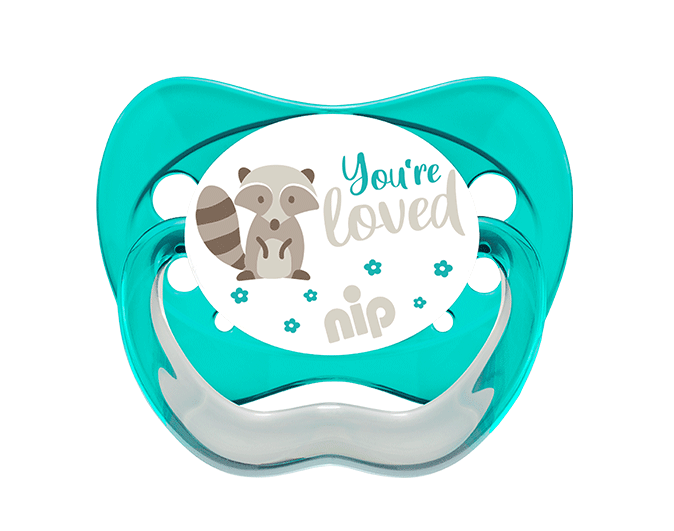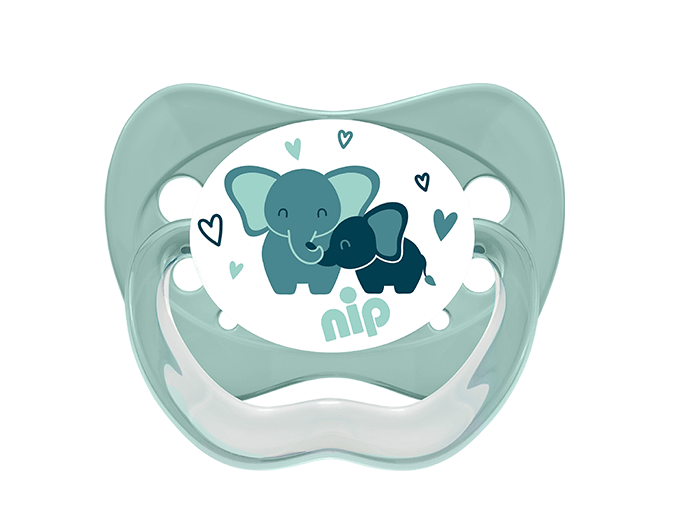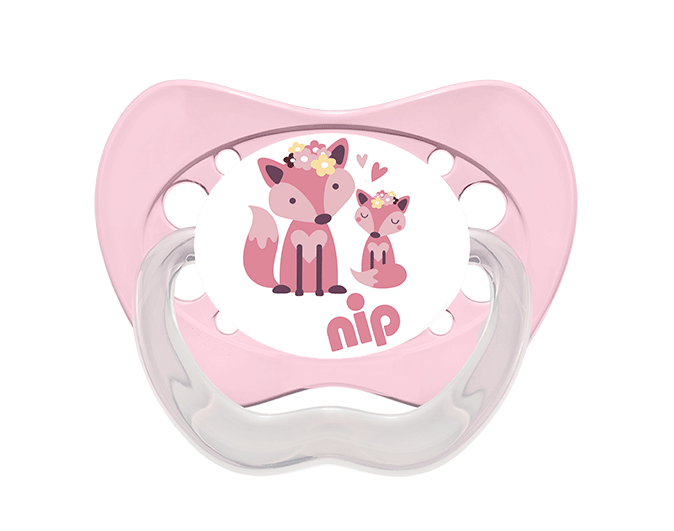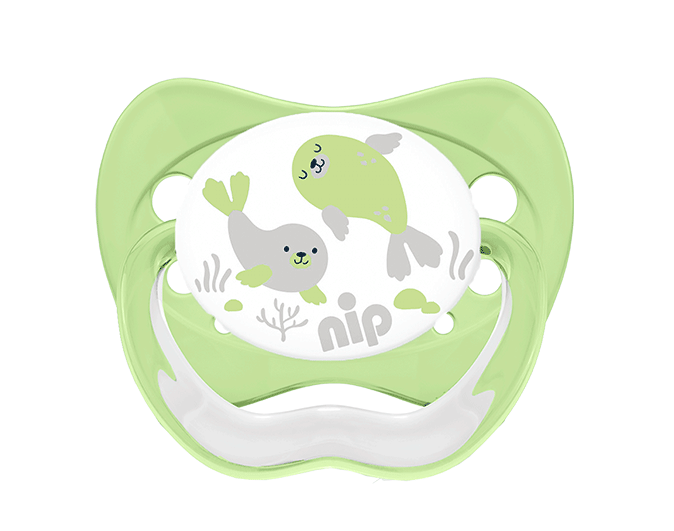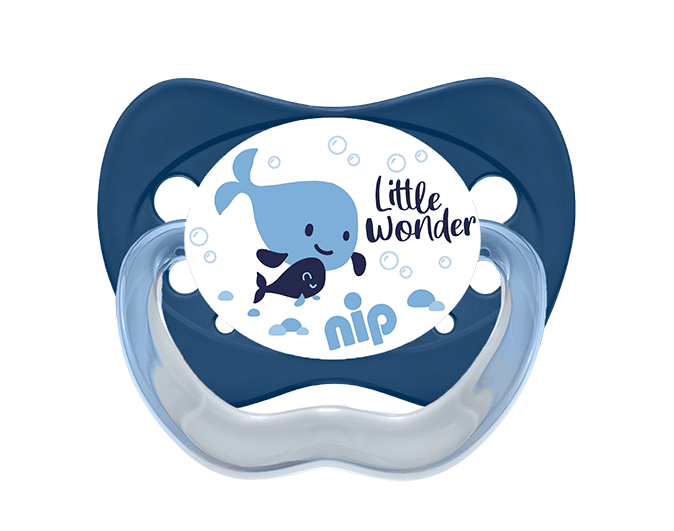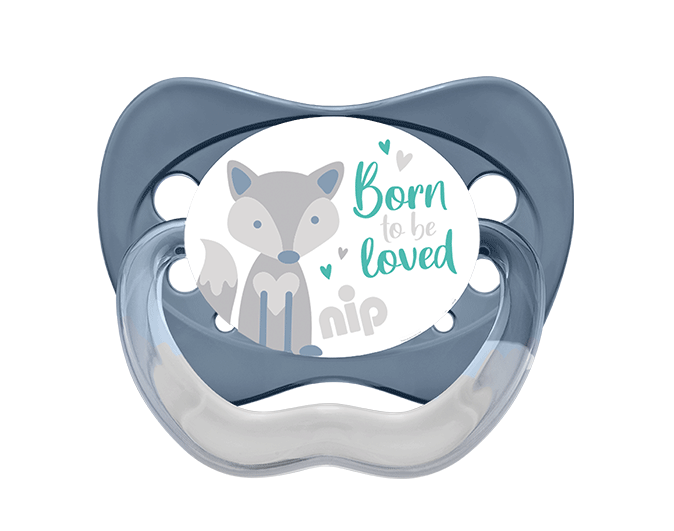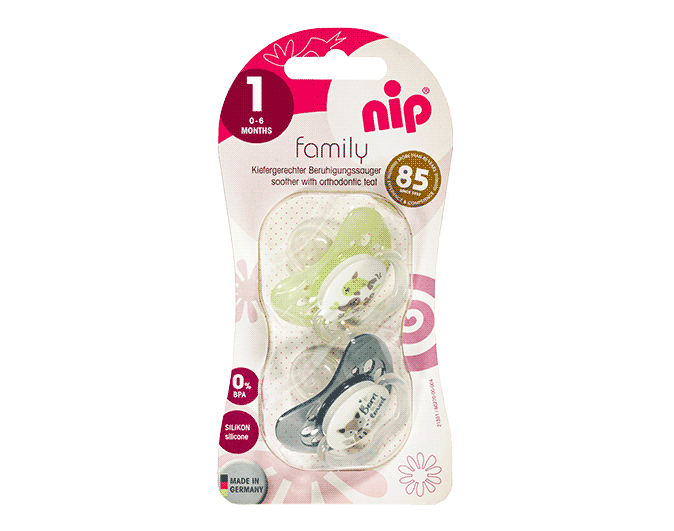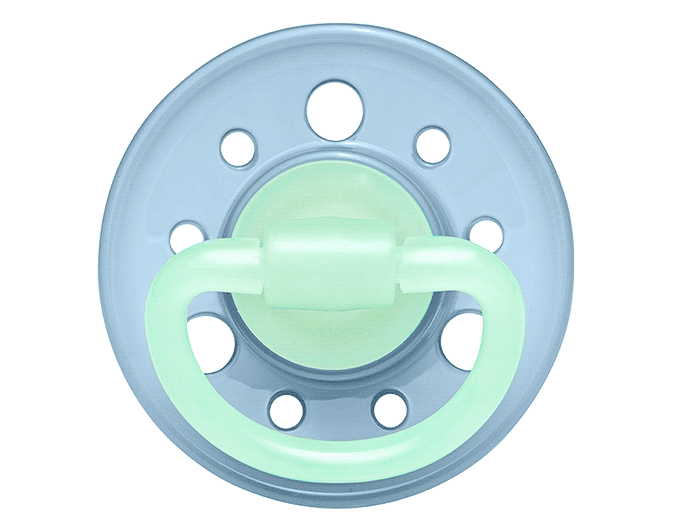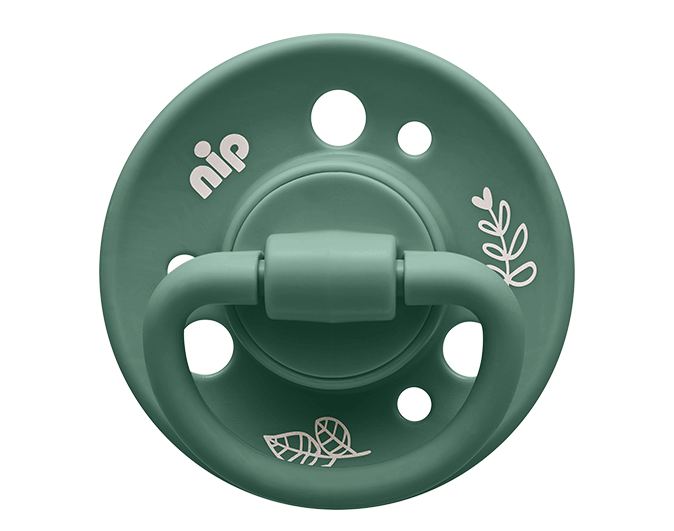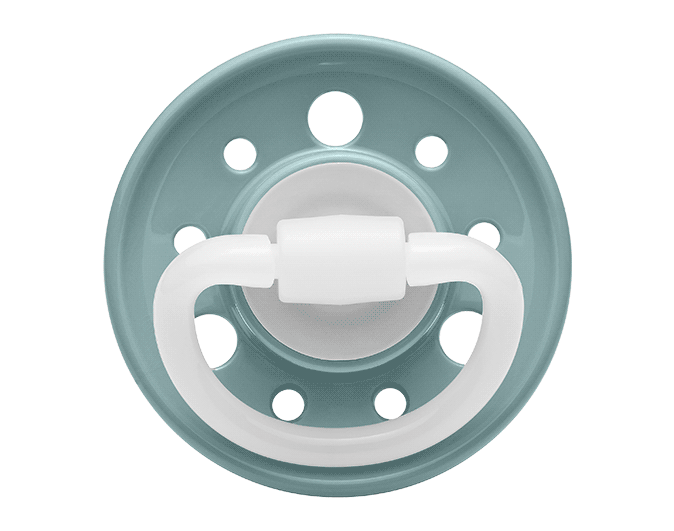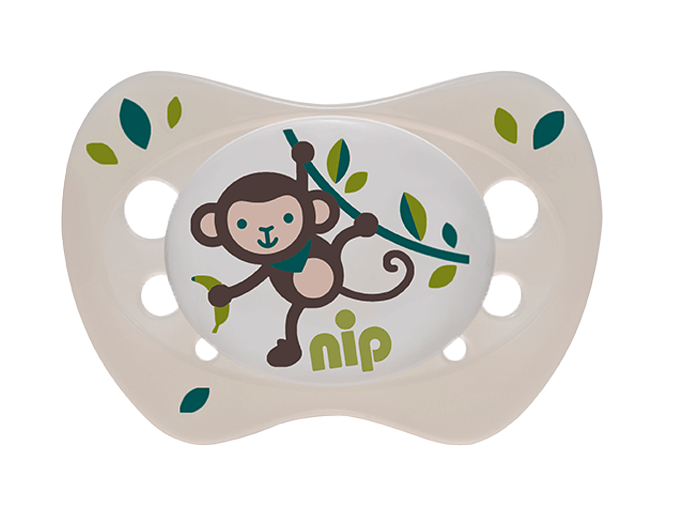Soother
Family Soother
- orthodontic, anatomically shaped, soft teat made from silicone which optimally adapts to the sensitive palate
- thin shaft of the teat reduces pressure on tooth and jaw areas
- extra flat knob with ring for comfortable sucking in any position
- rounded disk edge protects against pressure points
- extra large ventialtion holes along the corners of the mouth provide optimal ventilation for baby's delicate skin
- available in sizes 1-3
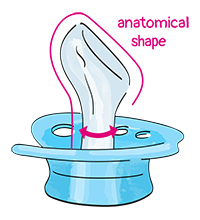
Anatomical shape
The nip® Family soother has an anatomical shaped teat. The thin shaft of the soother reduces pressure on the teeth and jaw areas and leaves enough free space for the tongue. The natural, jaw-friendly shape adapts optimally to the child's palate
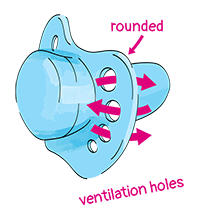
Ventilation holes
Numerous ventilation holes in the soother disc allow plenty of air to reach the baby's sensitive skin
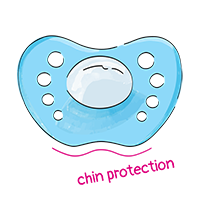
Chin protection
The soother disc is tailored to the mouth-nose-chin area and the rounded edge of the disc protects against pressure points
Soother sizes
The nip® Family pacifier is available in sizes 1 to 3.
Size 1
small and orthodontically shaped teat for babies from 0-6 months
Size 2
orthodontically shaped teat for babies from 5-18 months with extra stabilizing shafts
Size 3
orthodontically shaped teat for babies from 16-32 months with with extra stabilizing shafts
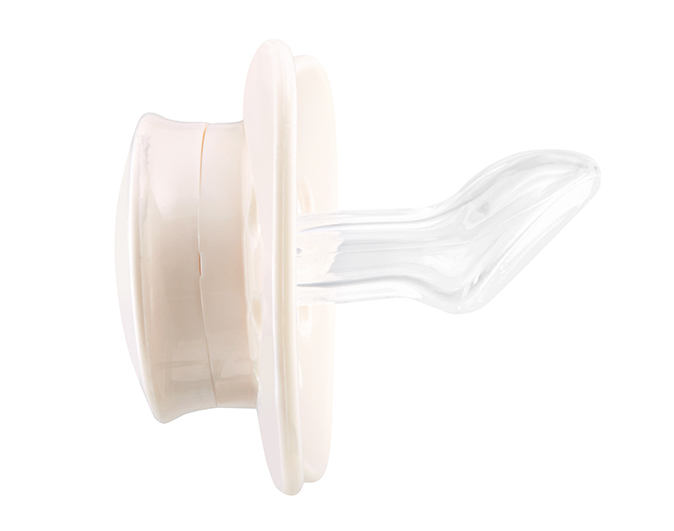
Silicone
...is a very durable, transparent plastic. It is not sensitive to light and heat. Silicone is hygienic and easy to clean but less resistant to pulling and biting than latex.
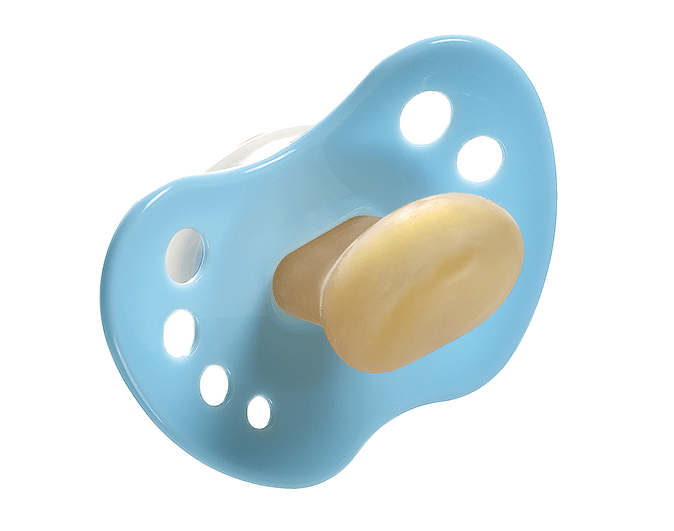
Latex
... is a honey-coloured natural product from the milk of rubber trees. Extremely resistant to pulling and biting due to its high elasticity. The teat is antistatic, therefore does not attract dust and fluff
FAQs about soothers
How long can nip® soothers and teats be used for and how often should they be replaced?
For hygiene and safety reasons, you should replace soothers after one to two months. Always check them carefully before each use, especially if your child already has teeth. If you see any signs of damage, such as bite marks or any other defects, please throw the soother away immediately and replace it as necessary.
What is the difference between latex and silicone?
Latex is an amber-coloured natural substance and is extracted as a milky sap from the rubber tree. It is characterised by its special resilience, elasticity and extreme tensile and tear strength. Latex does not become statically charged and therefore does not attract dust or fluff. Silicone on the other hand is a transparent plastic. It is more durable than latex and undergoes less optical change over the period of use. However, it is less bite resistant, which is why latex is preferable for children who tend to bite hard on the teat.
Why do the age ranges for nip® soothers overlap?
The age ranges for nip® soothers overlap on purpose to make it easier for you to choose the right soother. Babies do not all grow at the same rate and therefore it doesn't always make sense to move up to the next soother size at precisely 6 or 18 months. If your baby is already big for his or her age at 5 months, for example, you can move up to a size 2 soother without any problems.
When using a soother, should I be worried about my child swallowing it?
Do not worry, your child can NOT swallow a nip® soother! Even though it could fit entirely inside the mouth, its shape makes it impossible for it to be swallowed. If your child does put the entire soother inside his or her mouth, please keep calm. The many nip ventilation holes will mean that your baby can continue to breathe so there is no reason to panic.
Carefully remove the soother as gently as possible from your child's mouth.
At what age should I wean my child off the soother?
There are no hard and definitive rules as to when you should wean your child off his or her soother. Most children will normally give up using a soother by their third year and only very few children continue using them until their fifth year. If your child cannot part with his or her soother or finds it very difficult, it is best to gradually wean him or her off it by the time he or she is 36 months old.
